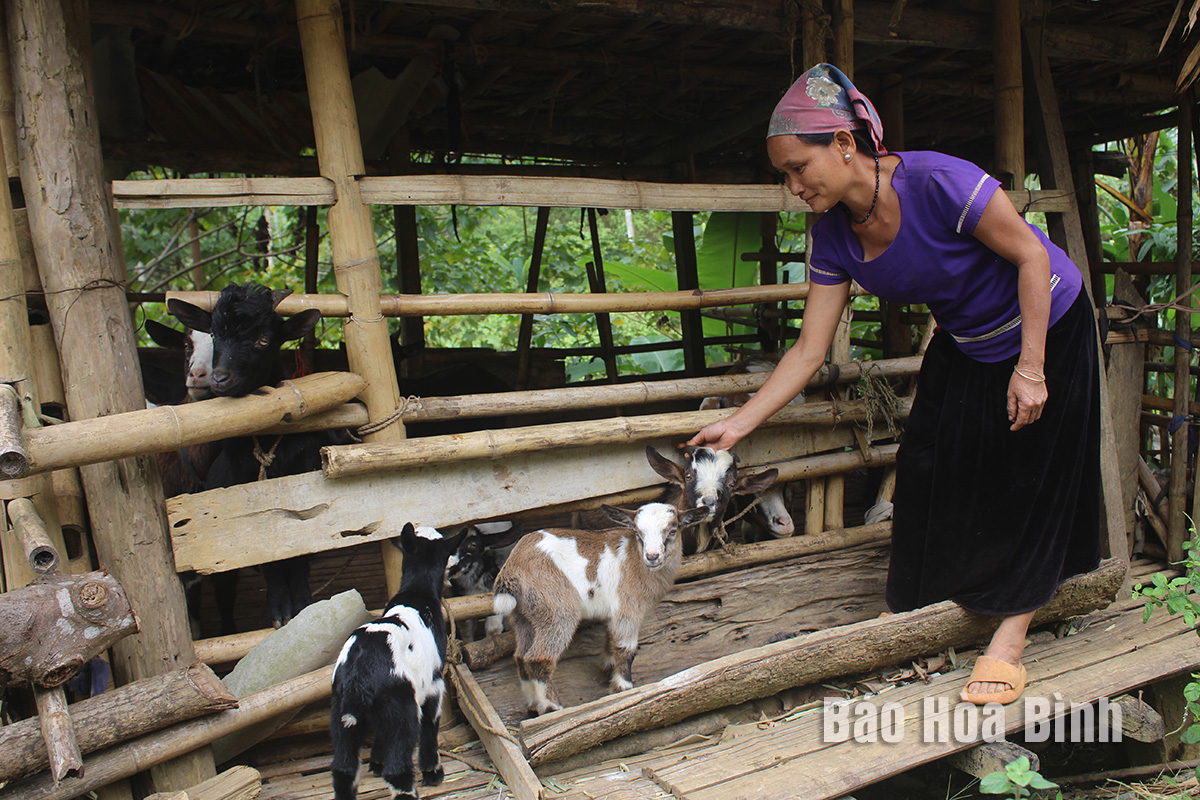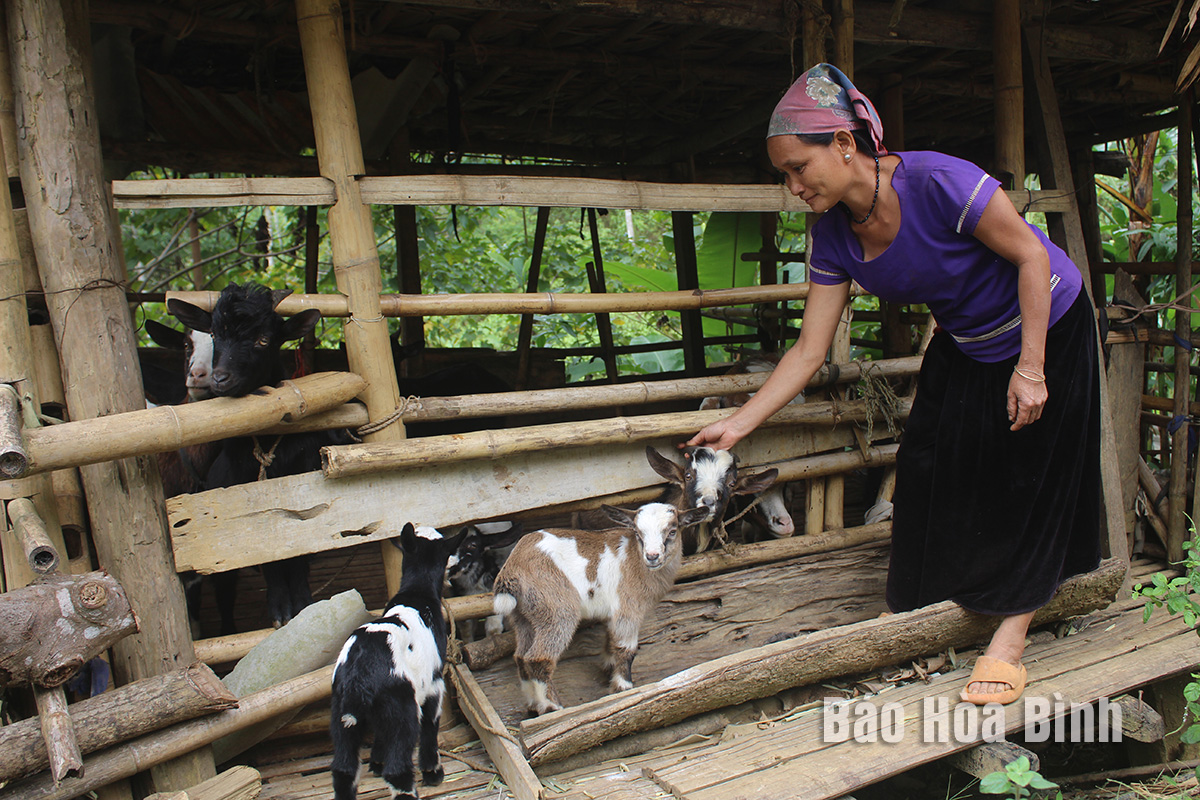



Taking advantage of hills and forests, the Tay ethnic people in Giap Dat commune, Da Bac district, have developed goat farming, bringing high economic efficiency
Da Bac is a poor district spanning over 77,976ha, with forest land making up more than 79% of the total area. This includes over 5,026ha of special-use forests, 28,574ha of protective forests, and more than 28,348ha of production forests.
During 2019-2023, the district received over 1,193ha of land from the Hoa Binh Forestry Company for local management, which was then allocated to households. Given these vast forest resources, Da Bac district has identified the forest economy as a key solution for increasing residents’ income.
Local administration pays attention to forest protection, replanting harvested production forests, and expanding protective forests. Efforts are also made to improve forest quality and productivity with a gradual shift toward large-timber forests.
Since 2019, the district has planted over 3,489ha of forest and more than 1.5 million trees of various types, equivalent to 697ha planted annually on average, mainly production forests with species such as acacia, bodhi and eucalyptus.
Bui Khac Vinh, Head of the district's Agriculture and Rural Development Sub-department said that in recent years, residents have prioritised high-quality tree species with clear origins, which has improved the district’s forest quality. There is growing interest in large-timber forestry models.
Residents of Ma Hamlet in Tu Ly Commune, home to over 100 Dao ethnic households, have made good use of 140 hectares of forest land to improve their income.
Duong Kim Tuat’s family has secured stable income from their 5 hectares of forest land. Previously, they grew mainly corn and cassava, which yielded low income. However, with improved road access, they shifted to acacia and eucalyptus. With a five-year harvest cycle, these trees now bring in hundreds of millions of dong.
"Besides planting forests, we also raise livestock and fish, which generates more regular income instead of waiting 4-5 years for timber sales,” Tuat said.
Raising livestock in forested areas has become increasingly popular among households in upland communes of Da Bac. A few years ago, Lo Van Tuat, an ethnic Tay from Khem Hamlet, Doan Ket Commune, grazed cattle on his nearly 3-hectare hill. When prices of beef kept falling, he decided to breed indigenous pigs, which are well-suited to the area’s natural conditions and food is readily available. This shift has given his family a more stable income.
According to Vinh, positive changes have been recorded in the local forest economy. However, most households engaged in forestry are poor and lack capital to adopt intensive forestry practices. Consequently, harvesting forest before it reaches maturity for materials and firewood remains common while expanding large-timber trees faces challenges due to the long cycle and high capital requirements. Thus, there should be a favourable policy to encourage and support locals, especially ethnic minorities, in forest protection and development to achieve greater economic benefits.